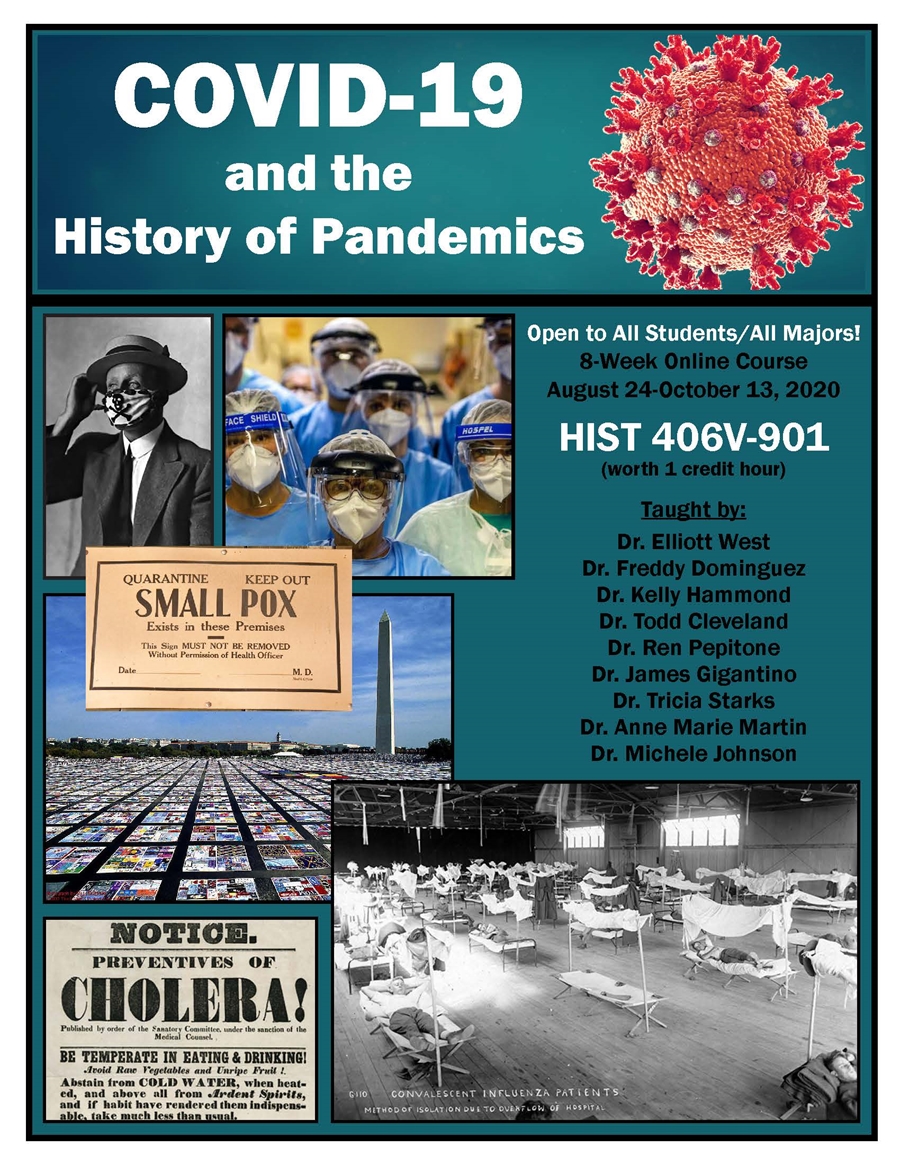Nine faculty from the Department of History have joined to design and launch a new online one-credit course for fall 2020 to explore the connections between our current pandemic and how humans have experienced and responded to pandemics past.
The Global Campus supported online course, "COVID-19 & The History of Pandemics," which will be offered in the first eight week session from Aug. 24-Oct. 13 as HIST 406V-901. All students of any major are welcome, and there are no prerequisites.
As the COVID-19 pandemic has unfolded over the last several months, Americans have consistently looked towards past epidemics for lessons on how to respond to the current situation.
Especially in the face of new, poorly-understood illnesses, the past can teach significant lessons to modern policymakers on how diseases spread, which methods have been effective to contain them, and how the population has responded to outbreaks that threatened individual lives, economies, and social structures.
"Historians have routinely been called upon by lawmakers around the world to consult on how the past informs our experience today—our team-taught course brings together faculty from across our department with expertise in countries spanning the globe to illustrate how citizens of the world fought against diseases from the Middle Ages to the present," said James Gigantino, professor and chair of the Department of History. "This course will call upon students in their assignments to make policy recommendations for containing COVID-19 to the White House Coronavirus Task Force, showing the relevancy of the past to our present."
Students will explore seven different pandemics in modules designed by eight different faculty including bubonic plague with assistant professor Freddy Dominguez, smallpox with professor Jim Gigantino, yellow fever with Distinguished Professor Elliott West and instructor Anne Marie Martin, cholera with assistant professor Ren Pepitone, the 1918 flu with professor Trish Starks, HIV/AIDS with associate professor Todd Cleveland, and the first emergence of COVID-19 in China with assistant professor Kelly Hammond. Instructor Michele Johnson will serve as the course coordinator.
Professor Trish Starks, an expert in the history of medicine, will begin the class with a module on the evolution of government interest in managing the health of their citizens.
Starks notes, "the history of public health is filled with as many stories of the interaction of ideas of governance as it is consideratons of medicine. When we make policy for an epidemic, we also make judgments about personal liberty, state responsibility, and the duties of citizenship. History gives us a great guide for knowing how these policies might play out."
The one-hour online course is available immediately for students to enroll in on UA Connect for the fall 2020 semester.
Contacts
Jim Gigantino II, chair
Department of History
479-575-7332,
